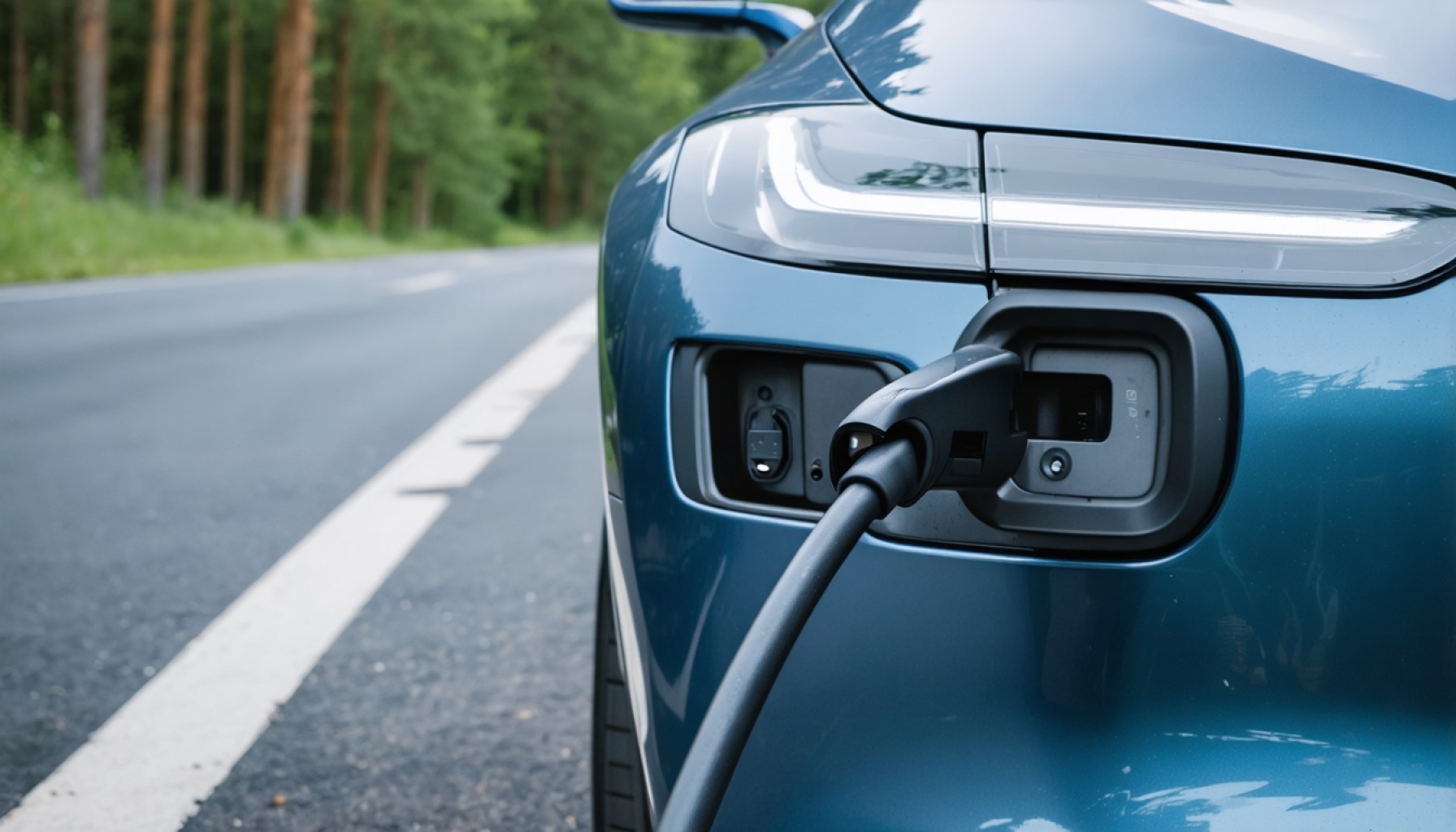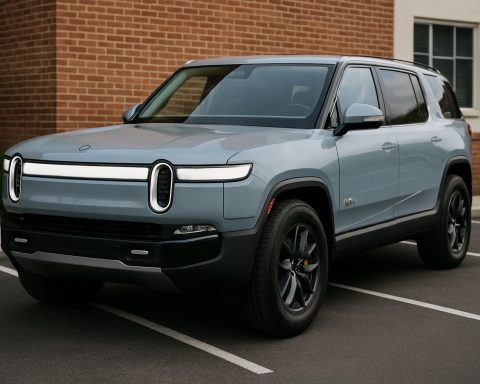- Electric vehicles (EVs) are at the forefront of a global shift towards sustainability, driven by a rapid increase in battery demand.
- Battery demand surged by 65% in a year, according to the International Energy Agency (IEA), highlighting the necessity of electric mobility.
- Governments worldwide are investing in EV infrastructure and clean alternatives to reduce fossil fuel reliance and combat climate change.
- Technological advancements in battery types—such as solid-state and sodium-ion—complement dominant lithium-ion technology for greater efficiency.
- Major companies like LG Energy Solution, BYD, Panasonic, and Tesla are leading innovations and scaling production.
- The electric vehicle battery market is expected to grow from $66.6 billion in 2023 to $375.84 billion by 2032.
- This transformation represents a cultural shift toward sustainable, interconnected, and electric transportation solutions.
A new dawn is breaking in the automotive world, marked by an electrifying revolution. As electric vehicles (EVs) surge forward, leaving trails of progress and possibility, the heart of this transformation beats within their batteries. These powerhouse components do more than propel vehicles; they drive a global shift towards a sustainable future.
Imagine a world where gridlocked highways echo the quiet hum of electric motors, where carbon emissions are a relic of the past. This vision is rapidly becoming reality, underpinned by the booming demand for electric vehicle batteries. The staggering statistics laid out by the International Energy Agency (IEA) reveal a market burgeoning with ambition and innovation. In just a year, demand for these batteries skyrocketed by an astounding 65%, signaling a global embrace of electric mobility as more than a trend—it’s a necessity.
At the core of this transformation lies the increasing focus of governments to curtail fossil fuel dependency and mitigate climate change impacts. Across the globe, nations are investing in charging infrastructure and incentivizing clean transportation alternatives, setting the stage for unprecedented growth in the EV sector. More consumers are aligning their purchases with eco-conscious values, opting for vehicles that echo their commitment to the planet.
Behind the scenes, a new era of battery technology is emerging. The dominance of lithium-ion batteries is complemented by innovations like solid-state and sodium-ion batteries, each promising greater efficiency and sustainability. The giants of the industry—LG Energy Solution, BYD, Panasonic, and Tesla—are at the forefront, pioneering advancements and scaling production to meet burgeoning demand. As they do, regions like Asia Pacific, with its bustling markets and extensive manufacturing capabilities, are taking center stage, fueling growth with a mix of innovation and cost-effectiveness.
Indeed, the electric vehicle battery market, valued at $66.6 billion in 2023, is projected to soar to a staggering $375.84 billion by 2032. This meteoric rise is not merely about numbers; it’s a testament to the evolving priorities of societies worldwide. It’s about creating a future where mobility enhances, rather than diminishes, our shared world.
This electrification wave isn’t just an industry pivot; it’s a cultural transformation, reshaping how we conceive travel and interact with technology. It speaks to a future that’s sustainable, interconnected, and electric. As the road ahead unfolds, one thing is clear: electric vehicle batteries aren’t just powering cars—they’re powering change.
So, whether it’s the whisper of an electric engine or the sustainability of an eco-friendly ride, it’s clear the world is moving towards a cleaner, greener horizon. And at the heart of this movement are electric vehicle batteries, silently revolutionizing the way we journey into tomorrow.
The Electrifying Future of EV Batteries: What You Need to Know
The Current Landscape of Electric Vehicle Batteries
The electric vehicle (EV) revolution is dramatically transforming the automotive industry. As demand for EVs increases, focus on the development and optimization of battery technologies intensifies. But what drives this shift, and how is the market evolving?
Emerging Battery Technologies
1. Solid-State Batteries: Unlike traditional lithium-ion batteries, solid-state batteries use a solid electrolyte. This design offers higher energy density, faster charging times, and significantly reduced risks of fire. Companies like Toyota are investing heavily in this technology with expectations of a major breakthrough in the next few years.
2. Sodium-Ion Batteries: Although still in the research phase, sodium-ion batteries are gaining attention for their potential to serve as a cost-effective alternative to lithium-based options. They promise an abundant and cheaper supply, given sodium’s greater availability compared to lithium.
Market Leaders and Innovations
Major companies are not resting on their laurels. Industry giants like LG Energy Solution, Panasonic, Tesla, and BYD lead the charge by investing in research and production facilities. These companies are significantly boosting production capacities to meet the growing demand, with particular emphasis on enhancing battery life, reducing costs, and improving sustainability.
How-To Steps for Choosing an Electric Vehicle
1. Assess Range Requirements: Determine how much driving you do on a daily and weekly basis. Choose a vehicle with a battery range that comfortably exceeds your typical usage.
2. Evaluate Charging Options: Consider access to home charging solutions and the availability of public charging infrastructure in your area.
3. Analyze Total Cost of Ownership: Look beyond the sticker price at incentives, maintenance savings, and electricity costs compared to traditional fuel expenses.
4. Research Battery Technology: Stay informed about the latest in battery technology. This knowledge could affect your decision, especially regarding future-proofing your investment.
Real-World Use Cases
– Urban Commuters: Electric vehicles are increasingly popular among city dwellers due to their quiet operation and zero local emissions.
– Long-Distance Travelers: While traditionally seen as a limitation, improved battery capacities and expanding charging networks are making EVs viable for long-haul trips.
Pros and Cons Overview
Pros:
– Environmentally Friendly: Reduced emissions contribute to cleaner air and lower carbon footprints.
– Lower Operating Costs: Maintenance and fuel cost savings over the vehicle’s lifespan.
Cons:
– Higher Initial Cost: EVs can be more expensive upfront compared to traditional vehicles.
– Charging Infrastructure: While expanding, the network is not yet as ubiquitous as gasoline stations.
Market Forecasts and Industry Trends
– Growth Projections: The electric vehicle battery market is predicted to swell to $375.84 billion by 2032, driven by technological advancements and global policies promoting sustainability.
– Regional Focus: The Asia-Pacific region, with its robust manufacturing capabilities, remains a hub of growth, innovation, and production for EV batteries.
Quick Tips for Maximizing Battery Life
– Regular Maintenance: Follow manufacturer guidelines for regular checks.
– Temperature Management: Avoid extreme temperatures which can degrade battery life.
– Optimal Charging: Keep battery charge levels between 20% and 80% for daily use, only fully charging when necessary for long trips.
Conclusion
The silent revolution of electric vehicle batteries is reshaping our roads and our future. Whether it’s the innovation within the battery itself or the environmental benefits encompassed, the world is accelerating towards this electric frontier. Stay informed and proactive, whether choosing a vehicle, investing in related stocks, or simply staying abreast of progress in sustainable tech.
For more information on electric vehicles and their impact, visit the International Energy Agency.









